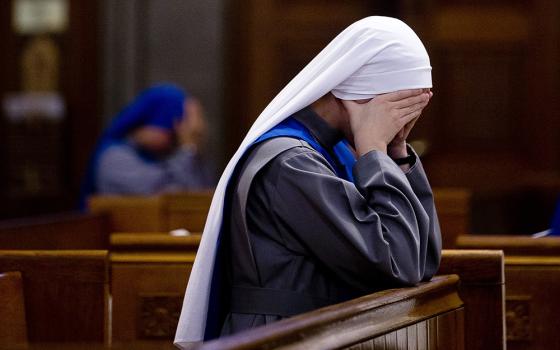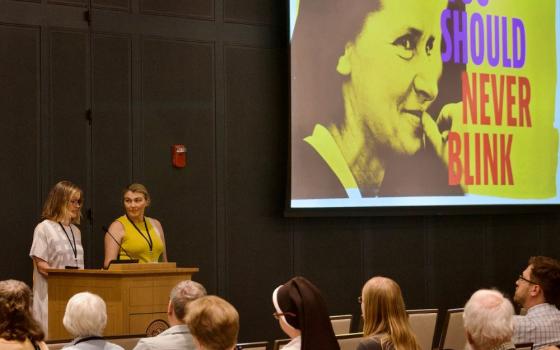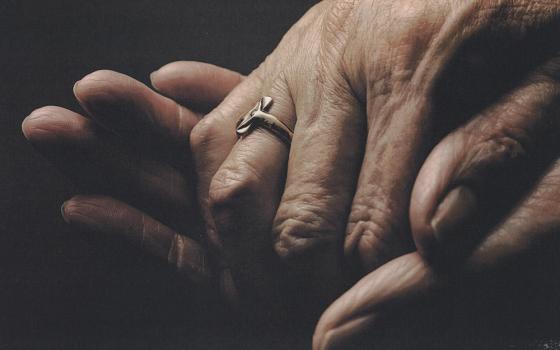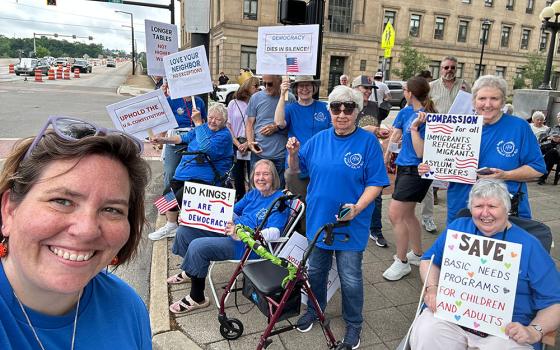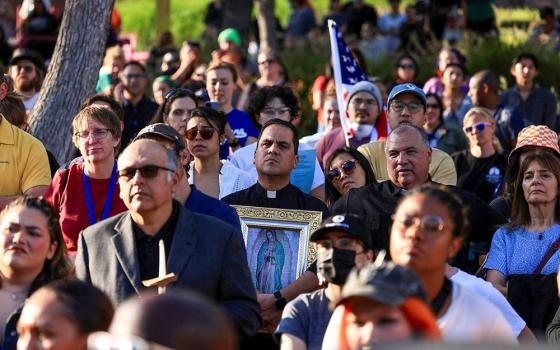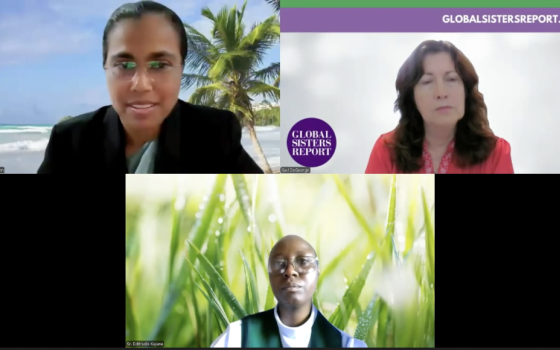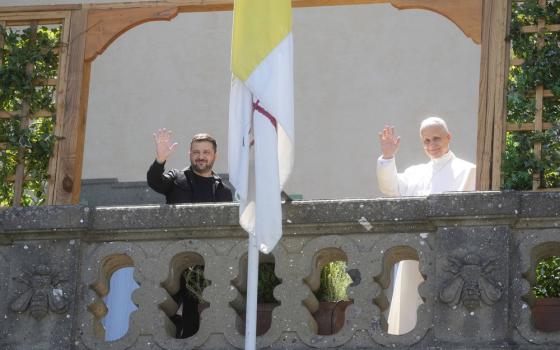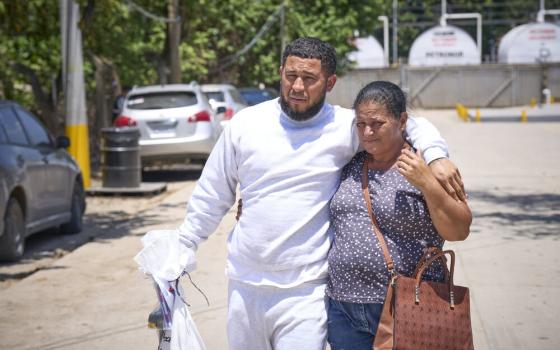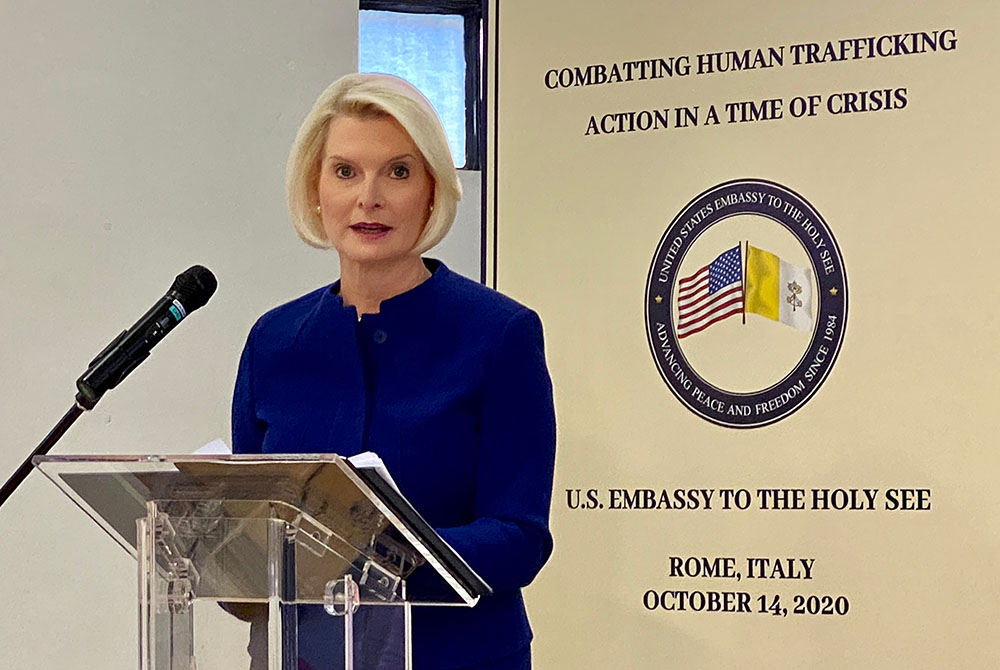
Callista Gingrich, the U.S. ambassador to the Holy See, speaks Oct. 14 at "Combating Human Trafficking: Action in a Time of Crisis," a symposium sponsored by the U.S. Embassy to the Holy See and held at the International Union of Superiors General in Rome. (Courtesy of the U.S. Embassy to the Holy See)
In addition to eliminating jobs, halting and slowing travel, and disrupting food pipelines, the worldwide coronavirus pandemic has exacerbated the problem of human trafficking, said experts gathered at an Oct. 14 symposium sponsored by the U.S. Embassy to the Holy See and held at the International Union of Superiors General in Rome.
Declaring human trafficking "a stain on all of humanity," Callista Gingrich, the U.S. ambassador to the Holy See, said human trafficking "is impervious to our current health crisis."
"It invades borders, destroys communities, and robs millions of their human dignity," Gingrich said in opening remarks at the symposium, "Combating Human Trafficking: Action in a Time of Crisis."
"During the COVID-19 pandemic, human traffickers continue to prey upon the most vulnerable," she said.
In many communities, Gingrich said, "exploitation, abuse, and modern slavery are on the rise. Countless victims, especially women and children, face growing threats. As the economic fallout of this pandemic continues, additional men, women and children are likely to become victims of forced labor and sex trafficking."
She said that amid the troubling signs, alliances focused on ending the exploitation of humans for labor and sex can make a difference. She hailed the work of Catholic sisters, church-based humanitarian bodies and law enforcement and said the shared concern about human trafficking is a "cornerstone" of the relationship between the U.S. embassy and the Holy See.
"Together, we can save lives and end this horrific injustice," she said.
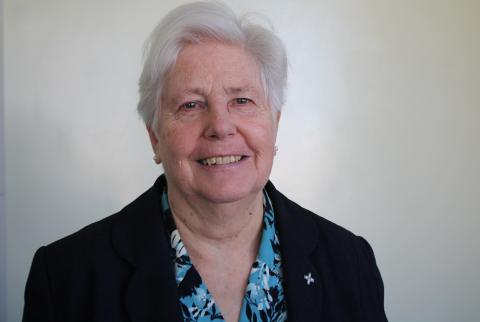
Loreto Sr. Patricia Murray (CNS / Courtesy of the International Union of Superiors General)
In introductory remarks, Loreto Sr. Patricia Murray, UISG's executive secretary, said UISG has been concerned about human trafficking for more than 20 years, predating the creation of UISG's ministry against trafficking, Talitha Kum. The global anti-trafficking network of religious works under the umbrella of UISG in collaboration with the Union of Superiors General.
Gingrich praised faith-based groups like Talitha Kum, which she said "labor tirelessly to save men, women, and children from horrific fates."
The work of Talitha Kum takes on even more urgency now, Murray said, noting that earlier this year, the United Nations said that the global pandemic could cause an additional 130 million people to fall into extreme poverty by 2030. The U.N. also said the pandemic would likely cause an estimated 34.3 million "to fall below the extreme poverty line" this year alone, with over half of that increase expected to happen in African countries.
That has made people desperate for ways to support themselves and their families and has opened the opportunity for exploitation by traffickers, Murray said.
Murray quoted Pope Francis' declaration earlier this year that financial gain from trafficking amounts to "blood money" and described trafficking as an "open wound on the body of contemporary society."
"So many vulnerable men, women and children are innocent victims of the commodification of the human person."
—Loreto Sr. Patricia Murray
"So many vulnerable men, women and children are innocent victims of the commodification of the human person," Murray said. "The pope laments that our contemporary world is 'sadly marked by a utilitarian perspective that views others according to the criteria of convenience and personal gain.' This selfish point of view, he added, keeps others from experiencing the fullness of their unique and unrepeatable humanity."
Murray said collective efforts can make a difference.
"Each of us needs to engage in action, however small," she told the gathering of about 50 people, which was also livestreamed internationally.
In his remarks, Ambassador John Cotton Richmond, the U.S. ambassador-at-large for the Office to Monitor and Combat Trafficking in Persons, who was not in Rome, praised Catholic sisters and other faith-based humanitarians for their work at the grassroots with trafficking victims and survivors, calling them "nimble" and examples of the need to tackle the issue of trafficking from "a victims' lens."
Citing the need to emphasize what he called the three P's — protection, prosecution and prevention — Richmond said despite growing awareness of the problem of trafficking, challenges remain: There has been a decline globally in prosecutions of human trafficking in the last five years, he said.
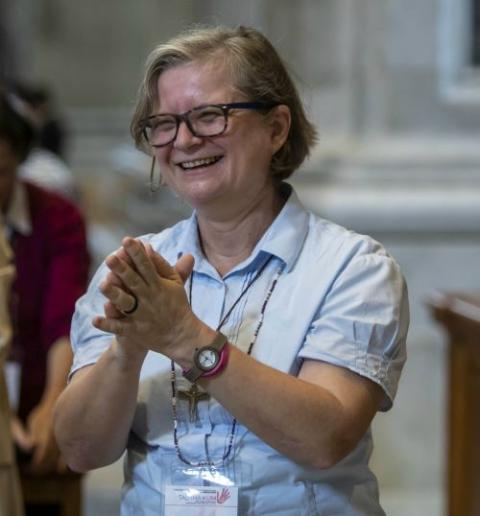
Comboni Missionary Sr. Gabriella Bottani is the international coordinator for Talitha Kum (Courtesy of Talitha Kum)
In her remarks, Comboni Missionary Sr. Gabriella Bottani, international coordinator of Talitha Kum and one of five panelists gathered in Rome, said the global pandemic is magnifying and highlighting social and economic inequities already present.
Because women have been particularly affected, they and children are more vulnerable to potential exploitation.
"The feminization of poverty is getting worse," Bottani said.
Bottani noted that the pressures of the pandemic make work with trafficking survivors and victims more difficult; for example, it places more strain on shelters for women.
"The feminization of poverty is getting worse."
—Comboni Missionary Sr. Gabriella Bottani
Kevin Hyland, a former London police officer and a senior adviser to the Santa Marta Group, an alliance of international police chiefs and Catholic bishops focused on anti-trafficking efforts, raised the issue of the continued need to work on the United Nations' sustainable development goals to end global poverty and other social ills by 2030.
He said the pandemic has highlighted the need for change of "socioeconomic norms" globally and praised the work of Catholic sisters, saying their anti-trafficking work saves lives.
Valiant Richey, a former prosecutor in Seattle who is now a special representative and coordinator for combating trafficking for the Organization for Security and Co-operation in Europe, noted that he and Hyland, who have backgrounds in law enforcement, see the need for systematic change, not just prosecution, to help stop human trafficking. This involves ending sex trafficking and labor abuse in the manufacturing of products and services, Richey said.
"At the societal level, we are encouraging trafficking," he said.
Advertisement
In his concluding remarks, Cardinal Michael Czerny, undersecretary of the Holy See's Migrants and Refugees Section of the Dicastery for Promoting Integral Human Development, reminded participants of Pope Francis' call that unmet basic needs in the world today are a source of shame.
Czerny, a Czech Jesuit, also noted the challenges ahead for those involved in anti-trafficking work, telling participants, "We're just 50 [people]." The wider world, he said, "has practically no idea this is a problem at all."
[Chris Herlinger is GSR New York and international correspondent. His email address is cherlinger@ncronline.org.]

